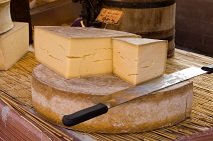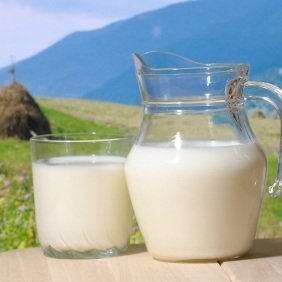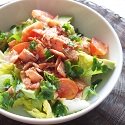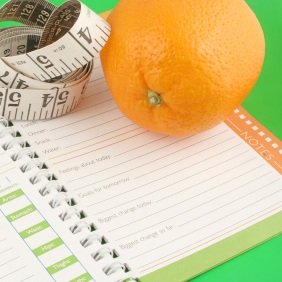Lose Weight
![]() Calories in Food
Calories in Food
![]() Calories in Dairy
Calories in Dairy
![]() Calories in Gruyere Cheese
Calories in Gruyere Cheese
Calories in Gruyere Cheese, Gruyere Nutrition Facts
How many calories in Gruyere cheese? See below, the Gruyere cheese calories for the different serving sizes. We provide you with Gruyere cheese nutrition facts and the health benefits of Gruyere cheese to help you lose weight and eat a healthy diet.
Gruyere is a semi-hard cheese, yellow in color, made from unpasteurized cow’s milk. It originates from the very pretty region of Gruyere in Switzerland. It's flavor gets more intense as it ages, although not as strong as some cheeses. It's ideal for cooking as it melts well, but can also be eaten on its own.
Gruyere cheese provides a fantastic source of both protein and calcium, but it is also very high in fat, approx. 32g per 100g, so you should consider avoiding if you are on a low fat diet.
Gruyere also provides a source of vitamins A, B1-B3, B5, B6, B12, D, E, K, phosphorus, selenium, zinc and other minerals.
It’s great for healthy bones and teeth. Other Gruyere cheese benefits may include added protection against colon cancer, given the presence of vitamin D3.

Cheese in general contains conjugated linoleic acid (CLA). Studies of CLA have shown that it helps with weight loss. Whilst we don’t generally recommend supplements as we believe all nutrients and vitamins should come from eating healthily, this is one supplement you may want to consider if you are giving up cheese as part of your weight loss program.
Compare calories in Gruyere cheese with the other calories in cheese and dairy products.
Calories in Gruyere Cheese
Refuse: 0%| Serving Size | Calories per Serving |
| 100 grams | 413 kcal (1728 kJ) |
| 1 cup, diced, 132 grams | 545 kcal (2281 kJ) |
| 1 cup, shredded, 108 grams | 446 kcal (1866 kJ) |
| 1 oz, 28.35 grams | 117 kcal (490 kJ) |
| 1 cubic inch, 15 grams | 62 kcal (259 kJ) |
| 1 slice (1 oz), 28 grams | 116 kcal (484 kJ) |
| 1 package (6 oz), 170 grams | 702 kcal (2938 kJ) |
Gruyere Cheese Nutrition Facts
| Nutritional value per 100 g (3.5 oz) | |
|---|---|
| Proximates: | |
| Water | 33.19 g |
| Energy | 1728 kJ (413 kcal) |
| Carbohydrates | 0.36 g |
| Sugars | 0.36 g |
| Fat | 32.34 g |
| Protein | 29.81 g |
| Minerals: | |
| Calcium, Ca | 1011 mg (101 %) |
| Iron, Fe | 0.17 mg (1 %) |
| Magnesium, Mg | 36 mg (9 %) |
| Phosphorus, P | 605 mg (61 %) |
| Potassium, K | 81 mg (2 %) |
| Zinc, Zn | 3.90 mg (26 %) |
| Copper, Cu | 0.032 mg (1.6 %) |
| Manganese, Mn | 0.017 mg (0.9 %) |
| Selenium, Se | 14.5 mcg (21 %) |
| Vitamins: | |
| Thiamine (Vit. B1) | 0.060 mg (4 %) |
| Riboflavin (Vit. B2) | 0.279 mg (16 %) |
| Niacin (Vit. B3) | 0.106 mg (0.5 %) |
| Pantothenic acid (B5) | 0.562 mg (6 %) |
| Vitamin B6 | 0.081 mg (4 %) |
| Folate (Vit. B9) | 10 mcg (2.5 %) |
| Vitamin B12 | 1.60 mcg (27 %) |
| Vitamin A | 948 IU (19 %) |
| Vitamin E | 0.28 mg (1.4 %) |
| Vitamin D | 24 IU (6 %) |
| Vitamin K | 2.7 mcg (3.4 %) |
| Percentages are relative to US Recommended Daily Intake (RDI) for adults. | |
Author: Lana Soko
You Might Also Like:
Like This Page?
|
Share This Page:
|







